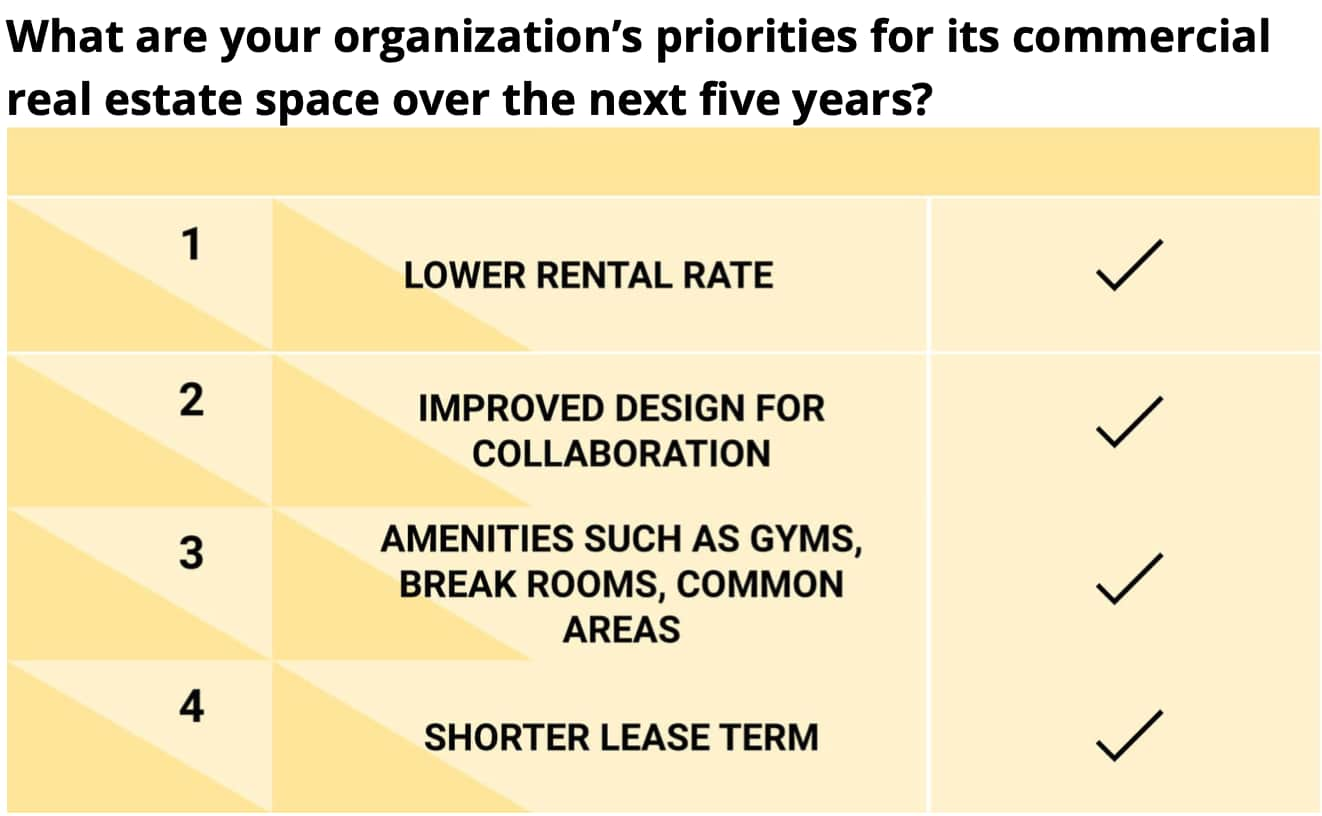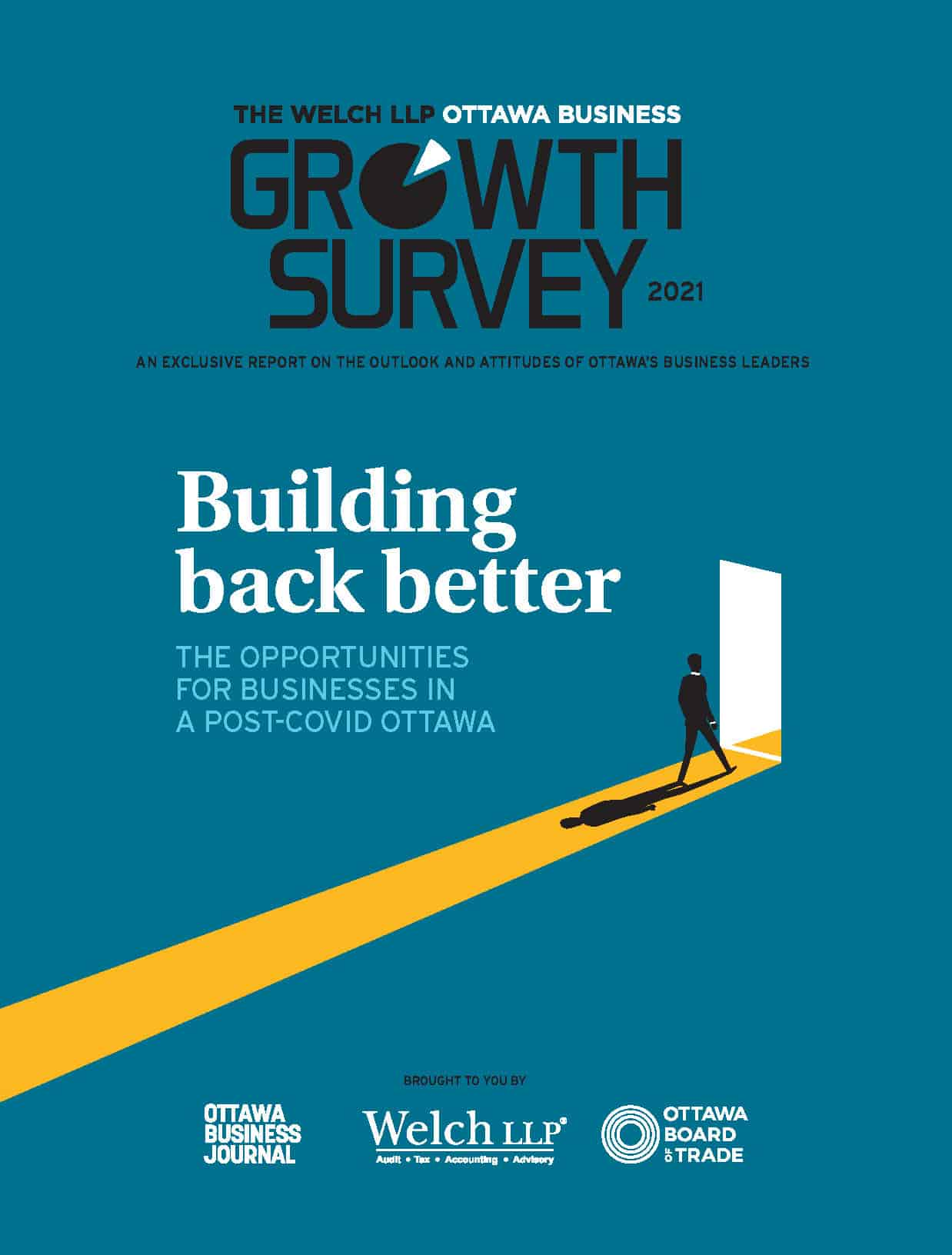Empty office buildings, shuttered restaurants and makeshift work-from-home arrangements were hallmarks of Ottawa’s economy over the past year.
There’s widespread optimism that will soon change. With a mass vaccine rollout expected this summer, many hope the economic recovery already underway in some sectors will expand to the industries hardest hit by COVID-19.
But relatively few observers believe the city’s business community will simply revert to its pre-pandemic form. There are already signs of a permanent shift in the way we work, connect with clients and think about office space, opening a virtually unprecedented opportunity for the city’s business leaders.
OBJ360 (Sponsored)

Bringing France to Ottawa: Chef Yannick Anton recognized for contributions to the capital food scene
At the age of 14 in Nice, France, Yannick Anton was asked to choose a path for his career. After a few cooking classes in school, and seeing his grandfather

Get ready to ROCK! The Lumière Gala returns to the Brookstreet this September
Brookstreet has always been a rock star in the world of hospitality. Now, the hotel is truly embracing the rock and roll vibe with this year’s themed gala in support
 The 2021 Welch LLP Ottawa Business Growth Survey explored how the city can build back better – taking the lessons learned during the pandemic and applying them to create a stronger, more vibrant Ottawa.
The 2021 Welch LLP Ottawa Business Growth Survey explored how the city can build back better – taking the lessons learned during the pandemic and applying them to create a stronger, more vibrant Ottawa.
Local companies are investing in digital tools and e-commerce platforms to reach new customers as many employers creatively help employees achieve better work-life balance through flexible arrangements.
And, as the wider economy reopens, landlords and urban planners are eyeing ways of reanimating downtown Ottawa and other urban neighbourhoods.
While there are undoubtedly more challenges ahead, this year’s survey of local business leaders paints a picture of optimism and a new phase of economic growth in the capital, says Jim McConnery, managing partner at Welch LLP.
“Business leaders really drive activity in our community, so it’s encouraging that there is a sense of hope,” he says. “That can translate into actual investments in the economy, which will help us bounce back stronger.”
Strengthening the bottom line
Many companies took a financial hit in the first year of the pandemic. More than half of respondents reported a decline in revenues, net income and overall confidence in the local economy.
But when asked about their outlook for the future, respondents painted a different picture.
 A slim majority say they expect the strength of their sector to improve in the next year – optimism fueled by the government’s extensive stimulus programs and the rollout of the COVID-19 vaccine, suggests McConnery.
A slim majority say they expect the strength of their sector to improve in the next year – optimism fueled by the government’s extensive stimulus programs and the rollout of the COVID-19 vaccine, suggests McConnery.
He adds that the massive disruption to the plans and forecasts of virtually every business over the past year – combined with lingering uncertainty – has changed how many companies are approaching budgeting.
McConnery says managers and executives are reviewing their balance sheet and cash-flow positions more frequently as well as adopting more scenario planning into their forecasts.
And, after riding a roller coaster of public health restrictions and changing consumer patterns, many businesses are emerging from the pandemic with more resilient operating models.
The wider adoption of e-commerce platforms and a stronger digital presence will help businesses in the city rebuild, says Sueling Ching, president and CEO of the Ottawa Board of Trade.

“Digitization has accelerated 10 years in the last 12 months,” she says. “Companies are realizing how important online marketing and sales tools are to surviving in a post-COVID world.”
While some companies saw the switch to virtual business as a temporary solution during the pandemic, digital tools for sales, meetings and daily operations are becoming permanent fixtures in most business sectors, adds Andrew Arnott, regional vice-president of RBC
“We are seeing businesses in Ottawa and across Canada invest in consumer‑facing digital platforms and information technologies that expand digital infrastructures,” says Arnott. “This will support online sales and their employees working remotely, which will ultimately help to build back in a stronger capacity.”
Prioritizing employee wellness
The pandemic also sparked a renewed focus on work-life balance.
As employees juggled new childcare and virtual learning roles while working from home, employers were forced to re-examine their internal operations to introduce more flexibility.
 Half of respondents say they adopted more accommodating arrangements regarding work schedules, a trend that will continue post-pandemic, says Dana Brown, dean at Carleton University’s Sprott School of Business.
Half of respondents say they adopted more accommodating arrangements regarding work schedules, a trend that will continue post-pandemic, says Dana Brown, dean at Carleton University’s Sprott School of Business.
“Employers are quickly realizing it’s not just about switching your business to Zoom meetings. You actually have to revisit your style of work,” she says. “This is an unprecedented opportunity to tear down the workplace structure and build it better.”
Such a shift is also prompting changes in managerial mindsets.
Companies can no longer measure productivity by the number of hours an employee spends at the office, but are instead focusing on the end result – creating more trust between employers and staff.
And, with respondents expecting to divide their workweek between home and the office once the pandemic subsides, flexibility in the workplace will continue to positively impact the way we work.
“COVID showed us that we could be approaching work in a much better way,” says Ching. “We can’t just look at these lessons and move on without taking action.”
The shift to remote work is also changing the composition of workforces employed by local organizations.

For jobs that can be performed remotely, many employers are finding that they’re no longer restricted to looking exclusively at the local labour pool.
More than a quarter of respondents say they would hire – or recently hired – a candidate living outside of the region, while another 20 per cent say their company already employed remote workers living outside of Ottawa.
A new urban landscape
The forced – and, for many organizations, ultimately successful – work-from-home experiment is prompting business managers to rethink the role commercial office space plays within their organization.
The lack of in-person interaction in the last year has pushed businesses to think about the office as more than just a place to work, but as a catalyst for collaboration and teamwork.
Providing employees with safe workstations and great shared spaces will be a priority for many managers, says Timothy Thomas, a partner and real estate lawyer at Perley-Robertson, Hill & McDougall.

“There’s a new checklist developing for office amenities,” says Thomas. “Government offices and local businesses are moving away from the cramped modular setup in favour of a more spacious layout,” he adds, noting that this might result in some organizations increasing their overall office footprint with a reimagined floor plan.
COVID-19 is having a lasting impact on where and how we work, creating fresh opportunities to inject a new vibrancy into the downtown core.
As the nation’s capital, the city should be pushing architectural boundaries and looking at how to reimagine Ottawa’s cityscape. That could include boldly designed buildings and 15-minute neighbourhoods in which daily essentials and amenities are within easy walking distance, says Julie Taggart, vice-president of leasing and operations at Taggart Realty Management.

“We need to see more density in the core and more usable green space,” she says. “Now more than ever we need attractions to draw people into the city.”
The expansion of Ottawa’s light-rail line, emergence of the new Zibi waterfront community and renewed focus on redeveloping LeBreton Flats presents an opportunity to invest in fresh ways of drawing tourists and engaging local residents.
“We’ve got to talk to one another in the community and figure out what our identity is and what we want for the city,” says Brown. “There’s a real opportunity here for positive change, but it’s one that could be lost if we don’t grasp it.”
Read the full 2021 Welch LLP Ottawa Business Growth Survey report below:






